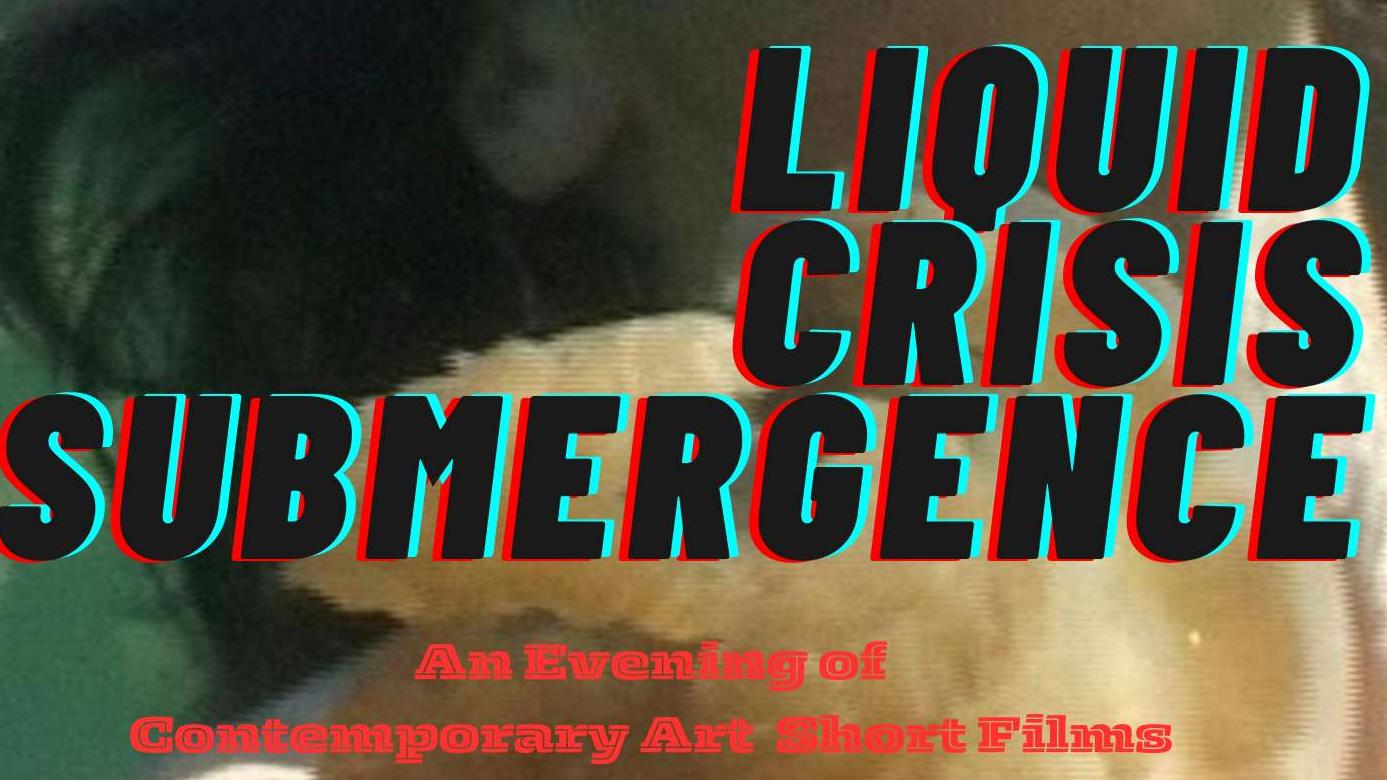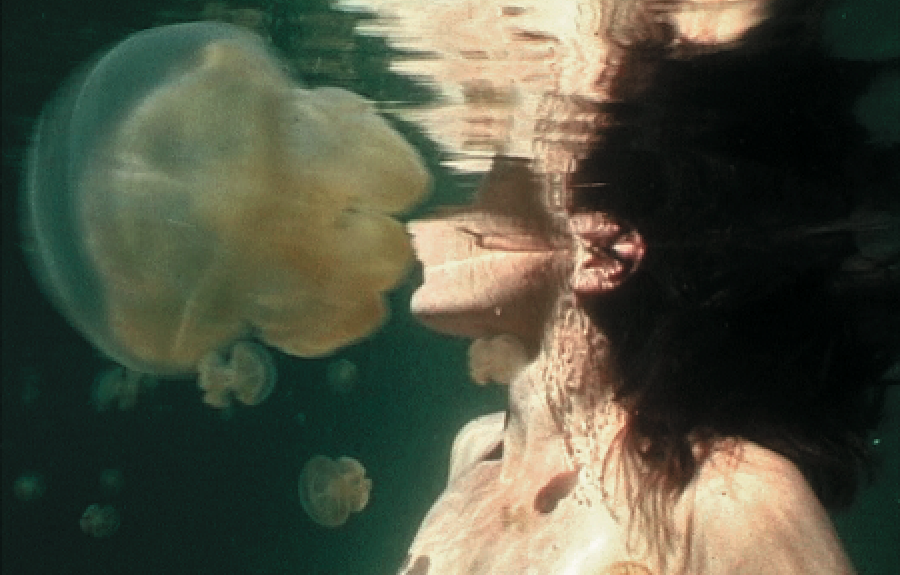Liquid Crisis Submergence

This program features five short films by contemporary artists: Laure Prouvost, Sophie Michael, Dorothy Cross, Yuyan Wang, and Peggy Ahwesh. These films were selected by Ashley Edlund-Chescheir and Patty Keller in relation to their research on the aesthetics of submergence as a response to contemporary crises.
Submergence considers the liquid modalities that manifest in the context of neoliberalism—the ebb and flow of economic markets, the ubiquitous ‘flow’ of information in digital media networks, the constant fluctuations created by privatization, consumerism, individualism, and the liquidation of social infrastructures. The program explores how these modalities relate to interconnected and unfolding social, political, and environmental crises, and asks how art and film might expose the ways in which these crises manifest in the ordinariness of daily life, prompting viewers to recognize the social practices, technologies, and systems that both distract us from our environment and alienate us from one another.
Crisis is something that keeps us suspended, or as Lauren Berlant puts it, “desperately doggie paddling” at the surface level. Submergence contends that there is currently no ‘outside of crisis’ and that the only way through it may be to dive deeper into it. Each of these works visualizes some of the liquid modalities linked to neoliberalism, edging toward defamiliarization through exaggeration before introducing alternative ways of living, being, and relating.
The formal choices of the works mimic different aspects of fluidity. For example, in Yuyan Wang’s One Thousand and One Attempts to be an Ocean, the viewer is inundated by a rapid succession of images, recalling the incessant flow of digital content consumed daily and its potential to alter perception. Wang pulls us deeper into a sensory overload, achieving a hypnotic rhythm that might potentially move the viewer from a state of distraction into a state of focus. In a similar vein, Peggy Ahwesh’s The Blackest Sea works with news media streams to consider how they distort and animate the humanitarian and ecological crises. Just as being physically underwater alters the way humans experience distance, color, sound, and space, these films manipulate the sensorial elements of place to activate feelings of calm, connection, and even a sense of depth that shift away from initial feelings of flux, precarity, and alienation. The mixed mood of serenity and vulnerability is palpable in Dorothy Cross’s Jellyfish Lake as the artist floats naked among hundreds of medusas, staging a direct encounter between the human and the natural environment.
Far from being just an underwater motif, Submergence reclaims liquidity to envision interconnection between people and between people and their environments. Through montage, these films can establish fluid relationships, from diverse perspectives, between fantasy and reality, past and present. In They Parlaiennt Idéale, Laure Prouvost adopts a nonlinear open-ended storytelling approach that flows like a stream of consciousness. The film blurs the line between the different points of view of its protagonists to envision collectivity like an octopus, which thinks and feels through separate appendages. Meanwhile, in Sophie Michael’s The Watershow Extravaganza, the camera reveals the mechanics of the theme park show in Devon. Sputtering jets, flashing bulbs prompt consideration of the inner workings behind the spectacle. Despite the implications of capitalist circulation in an entertainment space, the camera also heightens the wondrous atmosphere created by an interplay of water, mist and light revealing the potential to find personal and collective meaning in unexpected places.
Featuring:
Yuyan Wang, One Thousand and One Attempts to Be an Ocean (2021)
Peggy Ahwesh, The Blackest Sea (2016)
Sophie Michael, The Watershow Extravaganza (2016)
Dorothy Cross, Jellyfish Lake (2002)
Laure Prouvost, They Parlaient Idéale (2019)
Free admission. This program was made possible through the generous support of The Department of Romance Studies, The Department of Comparative Literature, The Department of Performing and Media Arts, and The Department of Art.
Special thank you to the artists and galleries for allowing us to share these films with the Cornell Community.

